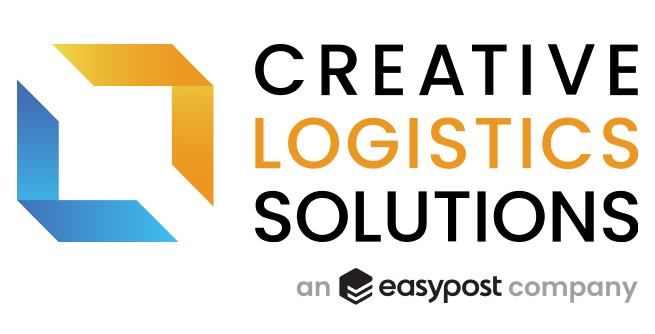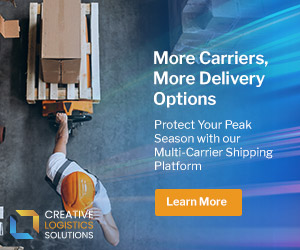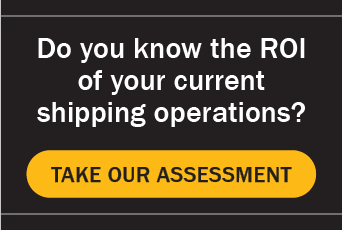What Is a 4PL or Fourth-Party Logistics Provider?
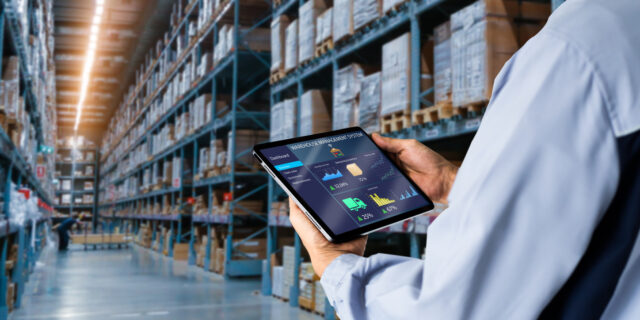
Managing a supply chain is like cooking a gourmet meal: for a great end result, every element needs to be just right, every step executed perfectly. A 4PL, or fourth-party logistics provider, takes on the role of supply chain master chef, coordinating various logistics services to create a delectable dish … that is, an optimized supply chain.
But let’s not get lost in the metaphor. What is a 4PL? And is using a 4PL logistics provider right for your company? By the end of this article, you’ll know the answer to both questions.
What is a 4PL?
Fourth-party logistics, or 4PL, is a logistics model where a business outsources its supply chain management to an external organization. The 4PL provider, simply called a 4PL or LLP (lead logistics provider), acts as a single point of contact for supply chain management and logistics, overseeing transportation, warehousing, order fulfillment, and more. This often includes managing multiple 3PL relationships.
4PLs are responsible for the following:
- Monitoring and optimizing the supply chain
- Acting as a single point of contact for logistics needs
- Managing 3PL relationships
- Sourcing and vetting vendors (suppliers, transportation, etc.)
- Overseeing inbound and outbound logistics
- Using data analytics to provide supply chain visibility
- Integrating logistics technology
The 4PL model is growing in popularity, with 42% of businesses looking to outsource logistics to 4PLs. And with good reason—relying on a fourth-party logistics provider enables your business to focus on core competencies while entrusting the intricacies of supply chain management to those with expertise. It can lead to increased agility, more cost-effective operations, and a logistics structure aligned with your business objectives.
What are the advantages of a 4PL?
Using a fourth-party logistics provider isn’t a perfect solution (we’ll discuss a few disadvantages below), but it does have many benefits. Working with a 4PL can help large businesses operate more strategically, use resources efficiently, and access logistics expertise that might otherwise be out of reach.
Centralized oversight and coordination
This Supply Chain Dive article states one important reason fourth-party logistics has risen in popularity: “Many companies are finding that their third-party logistics provider (3PL) simply can’t keep a handle on everything happening in their ever-more-complex supply chains. Hence, the evolution of the 4PL.”
Supply chains have many moving parts. Even with a 3PL managing order fulfillment, rapidly scaling businesses have lots of logistics tasks on their plates. While some organizations hire people to take care of these responsibilities internally, others find that it makes more sense to outsource logistics. Because 4PL providers eat, sleep, and breathe supply chain management, they’re able to coordinate everything strategically.
4PLs provide a holistic view of all processes, and this centralized coordination ensures that every aspect of your logistics network functions seamlessly, improving efficiency and reducing the risk of bottlenecks.
More time to focus on your core competency
What does your business do best? Every organization has a core competency—a product or service that sets them apart from the competition and drives sales. When you handle logistics internally, you might be devoting less time and fewer resources to your core competency. If you partner with a 4PL, they’ll take care of the complexities of logistics and free up internal resources for tasks that directly contribute to your business objectives.
Flexibility and scalability
4PL solutions are designed to be flexible and scalable, adapting to the unique needs of the businesses they work with. Whether you want to handle seasonal spikes in demand or expand into new regions, a 4PL provider adjusts your logistics strategy accordingly.
Access to logistics expertise
Working with a 4PL gives you in-depth logistics expertise without the need for extensive in-house training. Your 4PL partners will leverage their industry knowledge to optimize routes, negotiate with carriers, and implement cost-saving measures throughout the supply chain.
Continuous improvement and technology integration
Having the right technology is essential to a strong logistics operation. PwC’s 2023 Digital Trends in Supply Chain Survey found that 86% of executives agree that their company “should invest more in technology to identify, track and measure supply chain risk.” But what’s the best way to invest in new tech?
If you keep supply chain management in-house, you’re responsible for finding, vetting, and implementing new logistics technology. This gives you full control over the solutions you adopt, which many businesses prefer. Using fourth-party logistics gives you another option: the provider selects and implements technology to help you keep up with industry trends and stay competitive. While you don’t get the same level of control, you also don’t have to find and implement new software on your own.
What are the disadvantages of 4PL?
While 4PL logistics offers notable advantages, it’s essential to consider potential drawbacks when deciding whether it’s the right route for your business.
Dependency on an external partner
One of the main disadvantages of 4PL is that you’re dependent on an external partner for critical logistics functions. While this can lead to streamlined operations, it also means you have a lot at stake when you select a 4PL provider. If the one you choose runs into issues with effectiveness or reliability, their shortcomings will directly impact your supply chain.
Loss of direct control
Micromanagers, beware: entrusting your supply chain to a 4PL takes control out of your hands. Of course, some might see this as a perk—after all, the point of outsourcing is that you don’t want to handle certain tasks yourself. But for businesses accustomed to having hands-on control, this shift in dynamic could pose challenges, especially if there’s ever a need for quick decision-making or adjustments.
Potential communication challenges
A 4PL acts as the middleman between your business and your other supply chain partners, including suppliers, 3PLs, and carriers. While this extra layer of distance makes the workload lighter for your business, it can also lead to communication delays.
Initial transition costs
Implementing a 4PL solution involves an initial transition phase where your business integrates with the external logistics provider. This transition usually includes costs related to training, technology adoption, and process adjustments. While the long-term benefits are worth it for many companies, you need to consider whether you can afford the initial investment.
What are the differences between 3PL and 4PL?
Third-party logistics, or 3PL, is a logistics model where businesses outsource their order fulfillment to an external partner. The 3PL provider handles specialized logistics tasks, including warehousing, inventory management, picking and packing, and shipping.
While 3PLs focus on order fulfillment, 4PLs handle the entire supply chain management process from start to finish, providing a broader range of services. The key distinction between the two lies in the scope and role: 3PLs focus on specific functions and 4PLs offer holistic, end-to-end supply chain management, taking on a strategic role to help optimize processes, provide data visibility, and integrate new technologies.
Some logistics companies function as both 3PLs and 4PLs, with the relationship shifting over time to become more comprehensive. As Andy Moses, senior VP of sales and solutions for Penske Logistics, puts it, “The customer becomes reliant on our data to drive them forward. Eventually we are sitting at the table with them, and the operational component is expected.”
Let’s delve deeper into some key differences between 3PL and 4PL.
Asset ownership
As mentioned above, 3PL providers offer specific logistics services such as transportation, warehousing, and distribution. To offer these services, they own assets: physical distribution centers complete with storage solutions and equipment. In contrast, 4PLs usually don’t own physical assets.
Responsibility and decision-making
In a third-party logistics arrangement, the 3PL provider has limited responsibilities. They handle specific logistics functions related to order fulfillment but don’t make decisions about high-level strategy. A 4PL provider takes on a more central role, making strategic decisions and coordinating the entire supply chain.
Technology integration
While both 3PL and 4PL providers leverage technology, the depth of integration differs. 3PL providers often use technology to enhance specific functions, such as tracking and inventory management. 4PL providers integrate technology more comprehensively, utilizing data analytics and digital tools to optimize the entire supply chain.
Should you work with a 4PL?
The decision whether to work with a 4PL or not shouldn’t be made lightly. It depends on your business needs, goals, and structure. While some organizations prefer to outsource, others want to keep logistics in their own hands.
With that said, these basic guidelines will help you determine if your company is at the stage where a 4PL makes sense.
- Just starting out: in-house logistics. If you’re still a small business, handling logistics yourself is the most cost-effective solution.
- Growing fast: 3PL. For fast-growing small to medium-sized businesses, partnering with a 3PL can help improve order fulfillment efficiency.
- Approaching enterprise: 4PL. If your business is at or approaching the enterprise level, you’re big enough that working with a 4PL is worth the cost. Of course, that’s not to say every enterprise must enlist the services of a 4PL to scale their logistics. Many keep supply chain management in-house to retain complete oversight over their processes and keep quality control in their own hands.
Prefer to handle supply chain management internally? EasyPost Enterprise can help
For businesses managing their own supply chain, adopting the right technology is a must. Without technology (or with outdated legacy systems) you’ll find yourself unable to scale, struggling to maintain efficiency as order volume increases.
Enterprise shipping software is a key piece of the puzzle. It allows you to optimize your in-house logistics, ensuring precision and efficiency in your shipping processes. With sub-second shipment processing speed, automatic rate comparisons and shipping label generation, and integration with top OMS, WMS, and ERP platforms, EasyPost Enterprise simplifies shipping for businesses.
Every EasyPost Enterprise solution is custom-designed for individual organizations. Get in touch with our team of experts to learn what kind of solution we can create for you based on your pain points and shipping goals.
